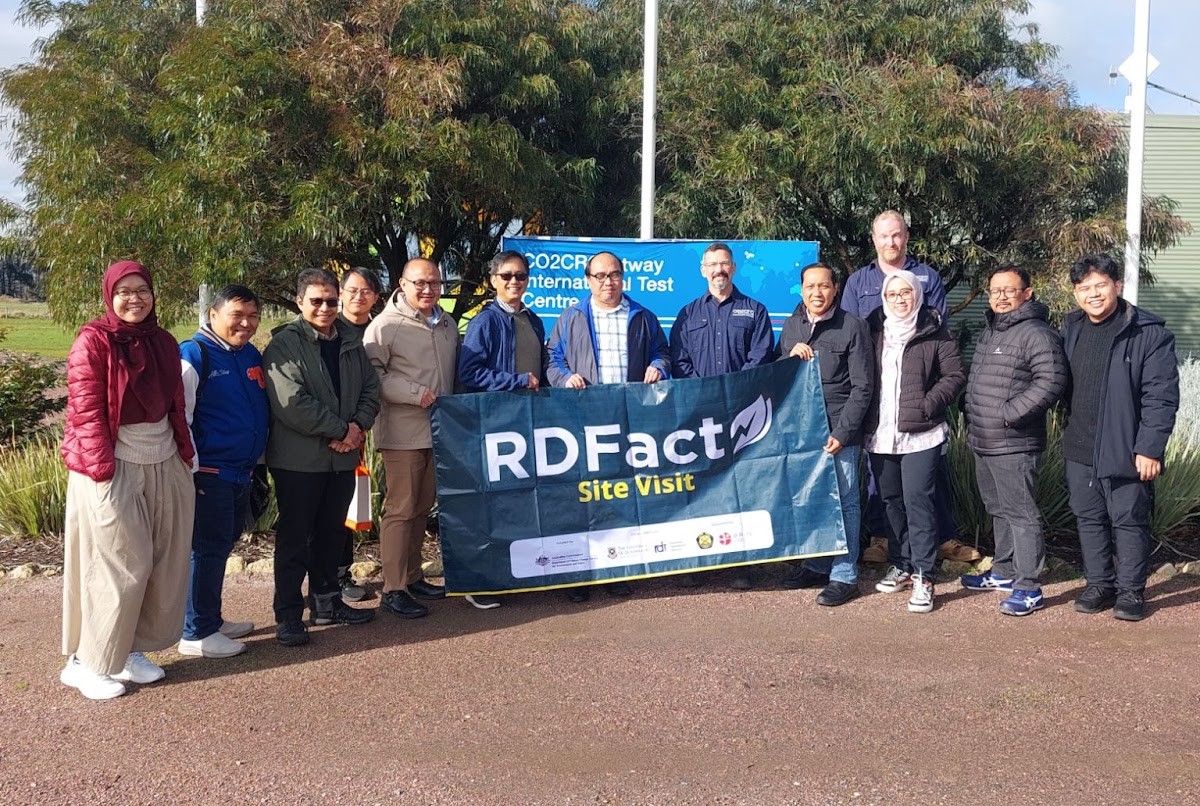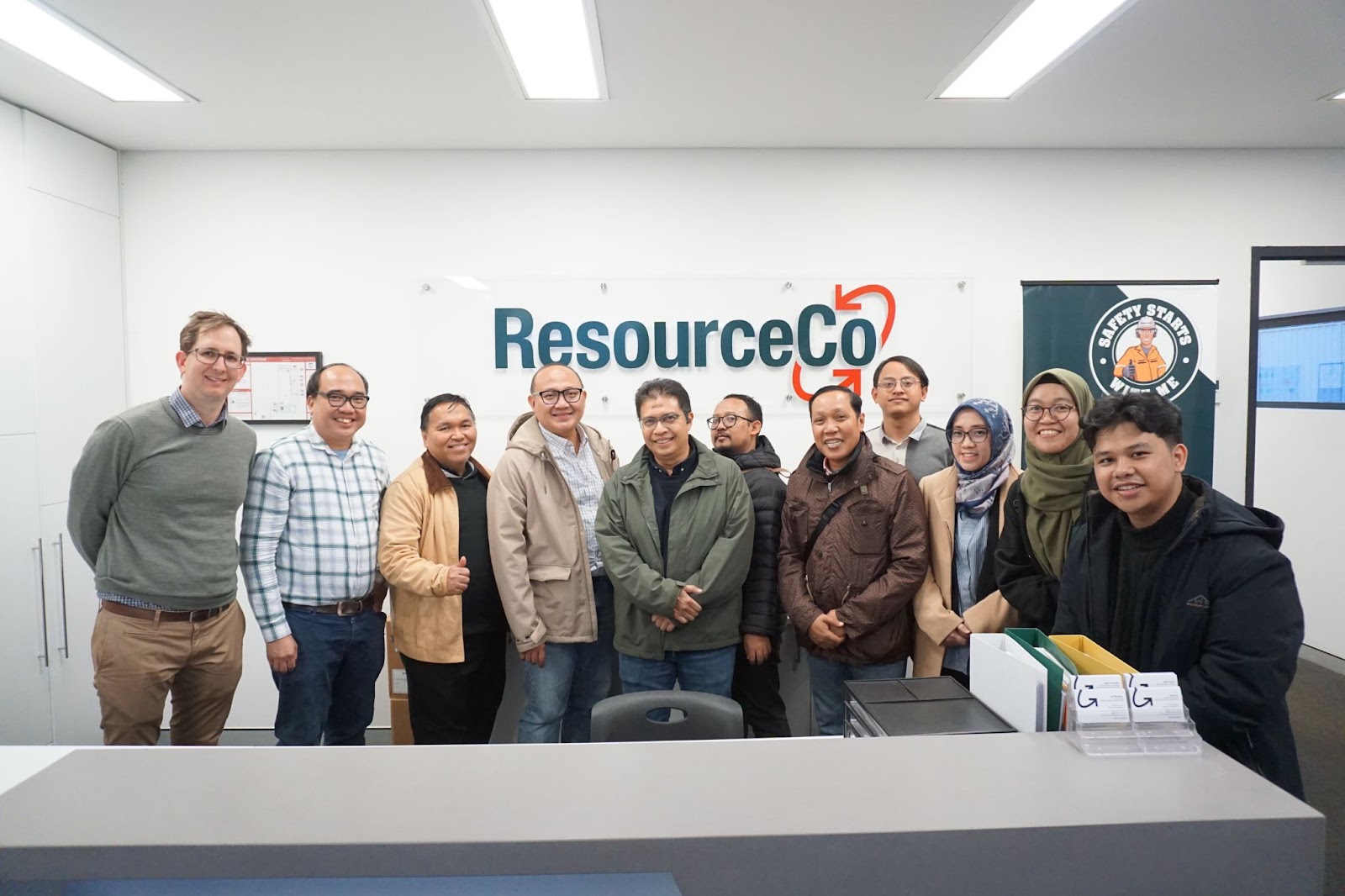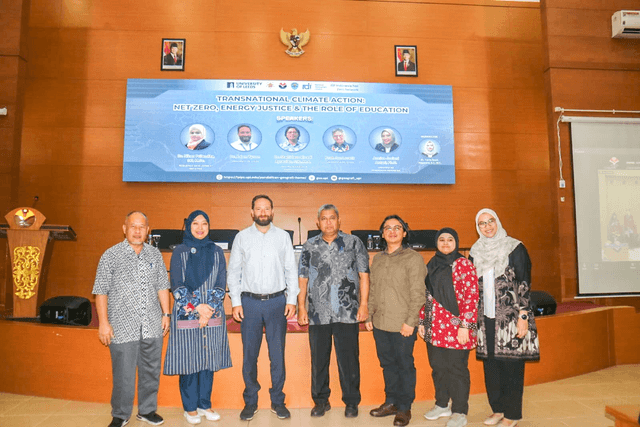Building Indonesia’s Capacity for CCUS Implementation through Site Visit Learning
In 2021, Indonesia submitted its Long-Term Strategy for Low Carbon and Climate Resilience (LTS-LCCR) to the UNFCCC. This commitment includes the strategic use of Carbon Capture Utilisation and Storage (CCUS) technology as part of its efforts. CCUS has also been regulated in Presidential Regulation No. 14 of 2024, which governs CCUS business activities, including schemes, licenses, and other relevant aspects. This was subsequently followed by other technical guidelines, such as the Ministry of Energy and Mineral Resources (MEMR) Regulation No. 16 of 2024, and Decision of the Head of Special Task Force for Upstream Oil and Gas Business Activities (SKK Migas) No. PTK-070. The progress Indonesia has made has put the country ahead of fellow Southeast Asian countries in the global CCUS development map.
The potential to store 69 gigatonnes (Gt) of CO₂ underground in Indonesia was identified in a study conducted by the Economic Research Institute for ASEAN and East Asia (ERIA), National Research and Innovation Agency (Badan Riset dan Inovasi Nasional/BRIN), and Lemigas in 2024. This potential is recognised as a strategic element in Indonesia’s decarbonisation efforts. Indonesia expressed its commitment in the Long-Term Strategy for Low Carbon and Climate Resilience (LTS-LCCR) document to utilise CCUS technology to address emissions in hard-to-abate sectors. The government plans to apply CCUS in coal power plants and biomass-coal co-firing power plants, Bioenergy with Carbon Capture and Storage (BECCS) as part of an effort to decarbonise the power sector. The BECCS strategy is also a key approach that combines co-firing with CCUS. The co-firing program for coal power plants, which began in 2023, continues to expand. One of the co-firing solutions involves using municipal waste processed into an alternative fuel, known as Refuse-Derived Fuel (RDF).
Beyond regulations and planning, further work is required to strengthen regulatory readiness and build industry capacity. Resilience Development Initiative (RDI), under the RDFact Project in collaboration with the University of Queensland, represented by its Principal Investigator, Dr Anthony Halog, organised a site visit to Australia to learn about CCUS technology. This site visit brought together Indonesian stakeholders from government and industry, particularly in the bioenergy and oil and gas sectors. Participants included representatives from the Ministry of Energy and Mineral Resources (Energi dan Sumber Daya Mineral/ESDM), the Ministry of National Development Planning (Badan Perencanaan Pembangunan Nasional/Bappenas), and Transgasindo, totalling 11 delegates. The visit took place from Monday, 28 July 2025, to Thursday, 31 July 2025. The aim was to provide first-hand experience of CCUS site operations and opportunities to engage directly with practitioners.
The main destination was the Otway International Test Centre (OITC) in South-West Victoria, Australia, managed by CO2CRC. CO2CRC is a non-profit research organisation that has focused on applied geological storage research since 2003. Its research activities have been crucial for global CCUS knowledge sharing, particularly for the development of CCUS in Australia. The visiting delegation sought to expand their knowledge of CCUS in areas such as technical operations, regulatory and permitting frameworks, business models, and financing approaches.
Paul Barraclough, Director of Business Development at CO2CRC, explained Indonesia’s potential to maximise CCUS, “Indonesia is ideally positioned to lead the region in the storage of external CO₂ emissions.” He highlighted Japan as an example, noting that although Japan has ambitious 2030 emission reduction targets, it lacks geological storage capacity. This presents an opportunity for Indonesia to help Japan meet its large sequestration needs.

Delegations with CO2CRC at Otway International Test Centre (OITC)
Nevertheless, CCUS is primarily constrained by business challenges, as it remains financially difficult to implement. The same constraint applies to Indonesia, which must develop suitable business models while considering the potential market for transboundary carbon transport. Since emitters vary across countries, Indonesia’s plan is to focus on carbon emissions from hard-to-abate sectors. This approach requires tailored strategies to encourage meaningful participation from industry in ways that benefit both business and the environment.
In addition to CCUS, the delegation also visited an RDF plant, commonly referred to as a Processed Engineered Fuel (PEF) plant in Australia. The site visited was a PEF production facility owned by ResourceCo, a waste management company based in Sydney. ResourceCo produces PEF from construction, demolition, and commercial and industrial waste, which is used as an alternative fuel for industrial boilers. This visit provided the delegation with insights into Australia’s waste hierarchy and demonstrated how refuse waste can be properly managed when systems are in place.

Delegations with ResourceCo
From these visits to the CCUS site and RDF plant, the RDFact Project aims to enhance knowledge and capacity among Indonesian energy and industry stakeholders. The RDFact Project has been running since 2023 with funding support from the Department of Climate Change, Energy, the Environment and Water (DCCEEW), Government of Australia.
Over the past three years, the RDFact Project has helped stakeholders in Indonesia through capacity building, research, consultations, and site visits such as this. The project aims to prepare stakeholders to be ready for future decarbonisation agendas, especially in the energy and waste-to-energy sectors.

